Strictly Personal
The problem of DRC’s beautiful wife, maize it planted by roadside, By Charles Onyango-Obbo
Published
10 months agoon
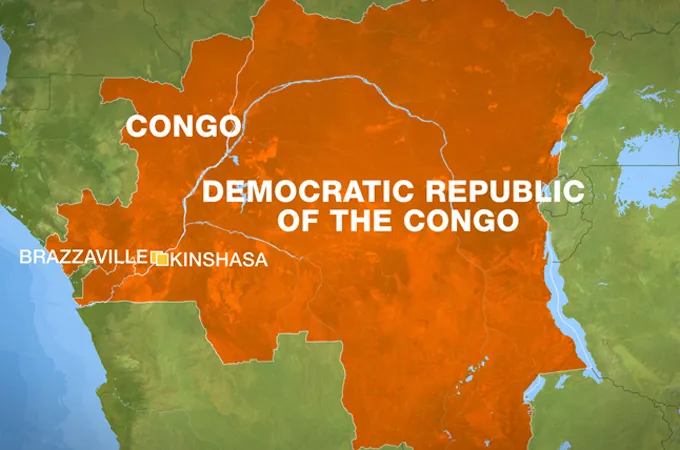
Watching the upheaval in the Democratic Republic of Congo in recent days, one is tempted to invoke the African proverb that “the man who marries a beautiful woman and the farmer who grows maize by the roadside have the same problem.”
The police fired tear gas on Monday to disperse protesters who burned tyres and US and Belgian flags near Western embassies and UN offices in the capital Kinshasa, angry about insecurity in eastern Congo.
The protesters claim the West supports Rwanda, which they and their government accuse of backing the M23 rebellion, whose advance could see them seize the strategic border city of Goma in the east.
This is a new phase of what has become an entrenched tradition of the Congolese oscillating between blaming everyone else but themselves for their problems, and demanding that other people solve these problems, including fighting for them.
In recent years — rightly — the Congolese have railed, then attacked, the long-running and ineffectual United Nations Organisation Stabilisation Mission in the Democratic Republic of the Congo (Monusco) for not ending the rebellion in the east.
In late 2022, DRC’s kin in the EAC dispatched the East African Community Regional Force (EACRF) to separate the warring sides. Before long, Kinshasa and the people had risen against them, hounding them to go out to the jungle and fight the rebels for them. At the end of last year, EACRF left DRC with its tail between its legs.
Because the Congolese are our brothers and sisters, and we have a responsibility to love them, we also have a duty to tell them uncomfortable truths that will help them overcome.
So, we will return to our proverb. African proverbs are complicated. First, one needs to know that they passed into society through the mouths of men who were not feminists, so too many of them tend to portray women in bad light.
This one paints a heroic hard-working farmer (although it is mostly women, not men, who work the land in Africa) whose maize is stolen by passers-by, in contrast with the beautiful wife who betrays her husband and falls to the charms of other men.
However, African proverbs are also layered, so there is what they say, and the many things they mean. In this case, that people will covet a good thing — a good crop, a beautiful woman and, if we may add, a handsome, enterprising man. The “problem” here is how to keep your maize, beautiful wife, and enterprising husband. If you are better than all the men who hit on her, your beautiful wife will stay faithfully by your side.
Having your wife, husband, girlfriend or boyfriend run off with someone else can be very hurtful, but if you have a cantankerous truth-telling African aunt or uncle, they will also whisper to you that a partner whom no other man or woman has ever or will ever want is probably not worth having.
In real-world Congo politics, then, the reality is rebels will have friends and allies at home and abroad. Even Uganda’s Lord’s Resistance Army (LRA), as despicable as a rebel group can ever be, had friends outside who backed it.
The thing that should terrify everyone is a rebel group that no one wants to touch with a 10-metre pole, both in the day and night. The opposite is also true of rebels fighting to overthrow a government. If it is a government that doesn’t have a single friend even in the cynical world of geopolitics, then it’s probably worse than a cabal of cannibals.
For Congo, what is left is how to solve this “problem”. To stay with the farmer and the beautiful wife, what the Congolese are doing is like the strapping young man in old Africa who spent all his time attacking his parents, relatives, neighbours, and their friends because they failed to give him cattle to pay a bride price for a wife and build a hut for him to live in with her.
The scale of surrender of agency by many Congolese, including the political class and the government, is unsettling.
It’s partly understandable, too. The unusually brutal Belgian rule; the exploitation of all sorts of vultures for its vast minerals lasting over 100 years now; and an unbroken long spell of corrupt and cruel rule, have broken its self-confidence. The way to come to terms with the scale of failure and remain sane is to externalise all the problems to evil forces.
It has led to national paralysis, a belief that they can’t do much on their own to overcome.
DRC’s neighbours to the east, Uganda and Rwanda, offer good lessons. When President Yoweri Museveni took to the bush with his small band of rebels in 1981, the odds were stacked up against them. The British had a big programme with a special police force; the Tanzanian army that helped overthrow military dictator Idi Amin was on the side of the government, and hardy North Koreans soon got into the fight against them. They still won.
The prospects were even worse for the Rwanda Patriotic Army/Front when it crossed from Uganda and took to treacherous hills in 1990. Apart from Uganda, it was alone against the world, including one of the world’s superpowers at the time, France, which was in bed with the government in Kigali. They suffered setbacks, picked themselves up, and won.
Congo can win, but first, it will have to plant its own maize and fight its war for its own beautiful wife.
Charles Onyango-Obbo is a journalist, writer, and curator of the «Wall of Great Africans». Twitter@cobbo3
You may like
-


M23 Angola peace talks break down as Congo, Rwanda dash hopes
-


Congo to get Japan’s children mpox vaccination next week— Africa CDC
-
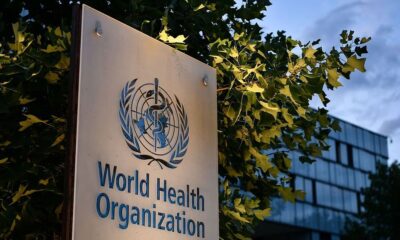

WHO to send specialists to DR Congo over unidentified illness
-
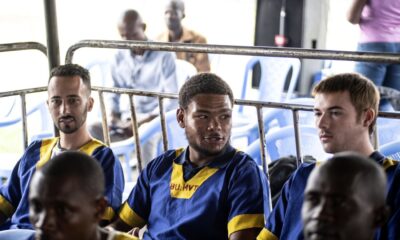

3 Americans sentenced to death in DR Congo for thwarted coup
-
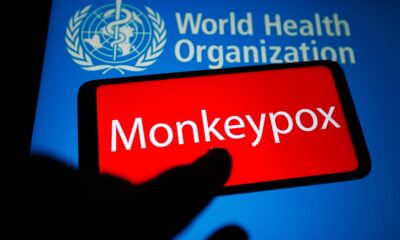

WHO confirms first case of mpox outside of Africa
-
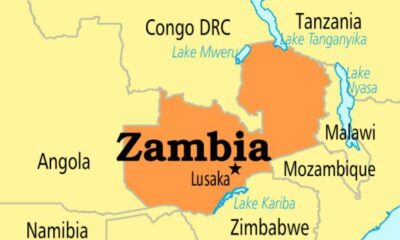

Zambia, Congo DR reportedly in talks for swift reopening of shut border
Strictly Personal
Let’s merge EAC and Igad, By Nuur Mohamud Sheekh
Published
4 weeks agoon
November 27, 2024
In an era of political and economic uncertainty, global crises and diminishing donor contributions, Africa’s regional economic communities (RECs) must reimagine their approach to regional integration.
The East African Community (EAC) and the Intergovernmental Authority on Development (Igad), two critical RECs in East Africa and the Horn of Africa have an unprecedented opportunity to join forces, leveraging their respective strengths to drive sustainable peace and development and advance regional economic integration and promote the African Continental Free Trade Area (AfCFTA).
Already, four of the eight Igad member states are also members of the EAC and, with Ethiopia and Sudan showing interest, the new unified bloc would be formidable.
Igad’s strength lies in regional peacemaking, preventive diplomacy, security, and resilience, especially in a region plagued by protracted conflicts, climate challenges, and humanitarian crises. The EAC, on the other hand, has made remarkable strides in economic integration, exemplified by its Customs Union, Common Market, and ongoing efforts toward a monetary union. Combining these comparative advantages would create a formidable entity capable of addressing complex challenges holistically.
Imagine a REC that pairs Igad’s conflict resolution strengths with the EAC’s diplomatic standing and robust economic framework. Member states of both are also contributing troops to peacekeeping missions. Such a fusion would streamline efforts to create a peaceful and economically prosperous region, addressing the root causes of instability while simultaneously promoting trade investment and regional cooperation.
These strengths will be harnessed to deal with inter-state tensions that we are currently witnessing, including between Ethiopia and Somalia over the Somaliland MoU, strained relations between Djibouti and Eritrea, and the continually deteriorating relations between Eritrea and Ethiopia.
The global economy experienced as a result of the COVID-19 pandemic, compounded by the Ukraine war and competing global crises, has strained donor countries and reduced financial contributions to multilateral organisations and African RECs. Member states, many of which are grappling with fiscal constraints, are increasingly unable to fill this gap, failing to make timely contributions, which is in turn affecting key mandate areas of Igad and EAC, and staff morale.
A merger between Igad and EAC would alleviate this financial pressure by eliminating redundancies. Shared administrative systems, integrated programmes, and a unified leadership structure would optimise resources, enabling the new REC to achieve more with less. Staff rationalisation, while sensitive, is a necessary step to ensure that limited funds are channelled toward impactful initiatives rather than duplicative overheads.
The African Union (AU) envisions a fully integrated Africa, with RECs serving as the building blocks of the AfCFTA. A unified EAC-Igad entity would become a powerhouse for regional integration, unlocking economies of scale and harmonising policies across a wider geographical and economic landscape.
This merger would enhance the implementation of the AfCFTA by creating a larger, more cohesive market that attracts investment, fosters innovation, and increases competitiveness. By aligning trade policies, infrastructure projects, and regulatory frameworks, the new REC could serve as a model for others, accelerating continental integration.
The road to integration is not without obstacles. Political will, divergent institutional mandates, and the complexity of harmonising systems pose significant challenges. However, these hurdles are surmountable through inclusive dialogue, strong leadership, and a phased approach to integration.
Member states must prioritise the long-term benefits of unity over short-term political considerations. Civil society, the private sector, the youth, and international partners also have a critical role to play in advocating for and supporting this transformative initiative.
The time for EAC and Igad to join forces is now. By merging into a single REC, they would pool their strengths, optimise resources, and position themselves as a driving force for regional and continental integration. In doing so, they would not only secure a prosperous future for their citizens and member states but also advance the broader vision of an integrated and thriving Africa.
As the world grapples with crises, Africa must look inward, embracing the power of unity to achieve its potential. A combined Igad-EAC is the bold step forward that the continent needs.
Nuur Mohamud Sheekh, a diplomatic and geopolitical analyst based in London, is a former spokesperson of the Igad Executive Secretary. X: @NuursViews
Strictly Personal
Budgets, budgeting and budget financing, By Sheriffdeen A. Tella, Ph.D.
Published
1 month agoon
November 20, 2024
The budget season is here again. It is an institutional and desirable annual ritual. Revenue collection and spending at the federal, State and local government levels must be authorised and guided by law. That is what budget is all about. A document containing the estimates of projected revenues from identified sources and the proposed expenditure for different sectors in the appropriate level of government. The last two weeks have seen the delivery of budget drafts to various Houses of Assembly and the promise that the federal government would present its draft budget to the National Assembly.
Do people still look forward to the budget presentation and the contents therein? I am not sure. Citizens have realised that these days, governments often spend money without reference to the approved budget. A governor can just wake up and direct that a police station be built in a location. With no allocation in the budget, the station will be completed in three months. The President can direct from his bathroom that 72 trailers of maize be distributed to the 36 states as palliatives. No budget provision, and no discussion by relevant committee or group.
We still operate with the military mentality. We operated too long under the military and of the five Presidents we have in this democracy, two of them were retired military Heads of State. Between them, they spent 16 years of 25 years of democratic governance. Hopefully, we are done with them physically but not mentally. Most present governors grew up largely under military regimes with the command system. That is why some see themselves as emperor and act accordingly. Their direct staff and commissioners are “Yes” men and women. There is need for disorientation.
The importance of budget in the art of governance cannot be overemphasized. It is one of the major functions of the legislature because without the consideration and authorisation of spending of funds by this arm of government, the executive has no power to start spending money. There is what we refer to as a budget cycle or stages. The budget drafting stage within the purview of the executive arm is the first stage and, followed by the authorisation stage where the legislature discusses, evaluates and tinkers with the draft for approval before presenting it to the President for his signature.
Thereafter, the budget enters the execution phase or cycle where programmes and projects are executed by the executive arm with the legislature carrying out oversight functions. Finally, we enter the auditing phase when the federal and State Auditors verify and report on the execution of the budgets. The report would normally be submitted to the Legislature. Many Auditor Generals have fallen victim at this stage for daring to query the executives on some aspects of the execution in their reports.
A new budget should contain the objectives and achievements of the preceding budget in the introduction as the foundation for the budget. More appropriately, a current budget derives its strength from a medium-term framework which also derives its strength from a national Development Plan or a State Plan. An approved National Plan does not exist currently, although the Plan launched by the Muhammadu Buhari administration is in the cooler. President Tinubu, who is acclaimed to be the architect of the Lagos State long-term Plan seems curiously, disillusioned with a national Plan.
Some States like Oyo and Kaduna, have long-term Plans that serve as the source of their annual budgets. Economists and policymakers see development plans as instruments of salvation for developing countries. Mike Obadan, the former Director General of the moribund Nigeria Centre for Economic and Management Administration, opined that a Plan in a developing country serves as an instrument to eradicate poverty, achieve high rates of economic growth and promote economic and social development.
The Nigerian development plans were on course until the adoption of the World Bank/IMF-inspired Structural Adjustment Programme in 1986 when the country and others that adopted the programme were forced to abandon such plan for short-term stabilisation policies in the name of a rolling plan. We have been rolling in the mud since that time. One is not surprised that the Tinubu administration is not looking at the Buhari Development Plan since the government is World Bank/IMF compliant. It was in the news last week that our President is an American asset and by extension, Nigeria’s policies must be defined by America which controls the Bretton Woods institutions.
A national Plan allows the citizens to monitor quantitatively, the projects and programmes being executed or to be executed by the government through the budgeting procedure. It is part of the definitive measures of transparency and accountability which most Nigerian governments do not cherish. So, you cannot pin your government down to anything.
Budgets these days hardly contain budget performance in terms of revenue, expenditure and other achievements like several schools, hospitals, small-scale enterprises, etc, that the government got involved in successfully and partially. These are the foundation for a new budget like items brought forward in accounting documents. The new budget should state the new reforms or transformations that would be taking place. Reforms like shifting from dominance of recurrent expenditure to capital expenditure; moving from the provision of basic needs programmes to industrialisation, and from reliance on foreign loans to dependence on domestic fund mobilisation for executing the budget.
That brings us to the issue of budget deficit and borrowing. When an economy is in recession, expansionary fiscal policy is recommended. That is, the government will need to spend more than it receives to pump prime the economy. If this is taken, Nigeria has always had a deficit budget, implying that we are always in economic recession. The fact is that even when we had a surplus in our balance of payment that made it possible to pay off our debts, we still had a deficit budget. We are so used to borrowing at the national level that stopping it will look like the collapse of the Nigerian state. The States have also followed the trend. Ordinarily, since States are largely dependent on the federal government for funds, they should promote balanced budget.
The States are like a schoolboy who depends on his parents for school fees and feeding allowance but goes about borrowing from classmates. Definitely, it is the parents that will surely pay the debt. The debt forgiveness mentality plays a major role in the process. Having enjoyed debt forgiveness in the past, the federal government is always in the credit market and does not caution the State governments in participating in the market. Our Presidents don’t feel ashamed when they are begging for debt forgiveness in international forum where issues on global development are being discussed. Not less than twice I have watched the countenance of some Presidents, even from Africa, while they looked at our president with disdain when issues of debt forgiveness for African countries was raised.
In most cases, the government, both at the federal and state cannot show the product of loans, except those lent by institutions like the World Bank or African Development Bank for specific projects which are monitored by the lending institutions. In other cases, the loans are stolen and transferred abroad while we are paying the loans. In some other cases, the loans are diverted to projects other than what the proposal stated. There was a case of loans obtained based on establishing an international car park in the border of the State but diverted to finance the election of a politician in the State. The politician eventually lost the election but the citizens of the State have to be taxed to pay the loan. Somebody as “Nigeria we hail thee”.
Transformation in budgeting should commence subsequently at the State and federal level. Now that local government will enjoy some financial autonomy and therefore budgeting process, they should be legally barred from contracting foreign loans. They have no business participating in the market. They should promote balanced budget where proposed expenditures must equal the expected revenues from federal and internal sources. The State government that cannot mobilise, from records, up to 40 percent of its total budget from IGR should not be supported to contract foreign loans. The States should engage in a balanced budget. The federal government budget should shift away from huge allocations to recurrent expenditure towards capital expenditure for capital formation and within the context of a welfarist state.
Sheriffdeen A. Tella, Ph.D.
EDITOR’S PICK


Outrage over murder of Nigerian beaten to death by South Africans inside estate security office
The Nigerian community, under the auspices of Nigerian Citizens Association in South Africa (NICASA), has raised the alarm over the...


Moroccan annual inflation rises to 0.8% in November
Morocco’s statistics office has confirmed that the country’s annual inflation rate, as determined by the consumer price index, increased from...


Swiss company Mercuria partners Zambia’s IDC in new metals trading firm
According to a statement released by Swiss commodities trader, Mercuria, on Thursday, it has established a metals trading arm with...


Nigerian activist remanded in prison for threatening President’s son
A Nigerian court has ordered a female activist, Olamide Thomas, to be remanded in prison custody for allegedly issuing a...


Zambian law association kicks over suspension of two members
The Law Association of Zambia (LAZ) has kicked against the suspension of two of its council members, Arnold Kaluba, the...


FIFA Ranking: Nigeria ends 2024 as fifth best team in Africa
Nigeria’s men’s football national team, the Super Eagles, ended the year 2024 as the fifth best team in Africa in...
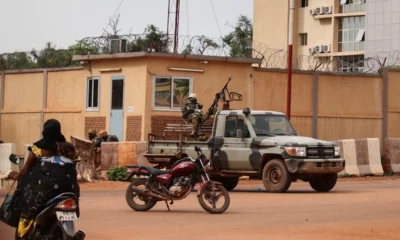

Burkina Faso releases 4 French spies after Moroccan intervention
In a diplomatic spat over their imprisonment, France and Morocco announced Thursday that four French nationals detained in Burkina Faso...
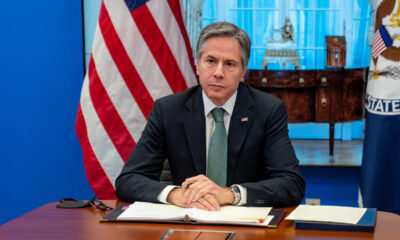

Blinken to reveal UN Sudan funding additions
Additional financing for humanitarian aid to Sudan and initiatives to strengthen civil society in the nation, where a conflict has...


Tanzania tells IMF economy projected to grow by 6% in 2025
Tanzania’s economy is expected to grow by about 6% in 2025 from an estimated 5.4% growth in 2024, its finance...


Nigeria to auction underdeveloped oil and gas fields in 2025
In order to meet the nation’s commitment to the UN Sustainable Development Goals, Nigeria will prioritize the development of natural...
Trending
-

 Metro2 days ago
Metro2 days agoZambian law association kicks over suspension of two members
-

 Metro1 day ago
Metro1 day agoNigerian activist remanded in prison for threatening President’s son
-

 VenturesNow23 hours ago
VenturesNow23 hours agoMoroccan annual inflation rises to 0.8% in November
-

 Musings From Abroad24 hours ago
Musings From Abroad24 hours agoSwiss company Mercuria partners Zambia’s IDC in new metals trading firm


